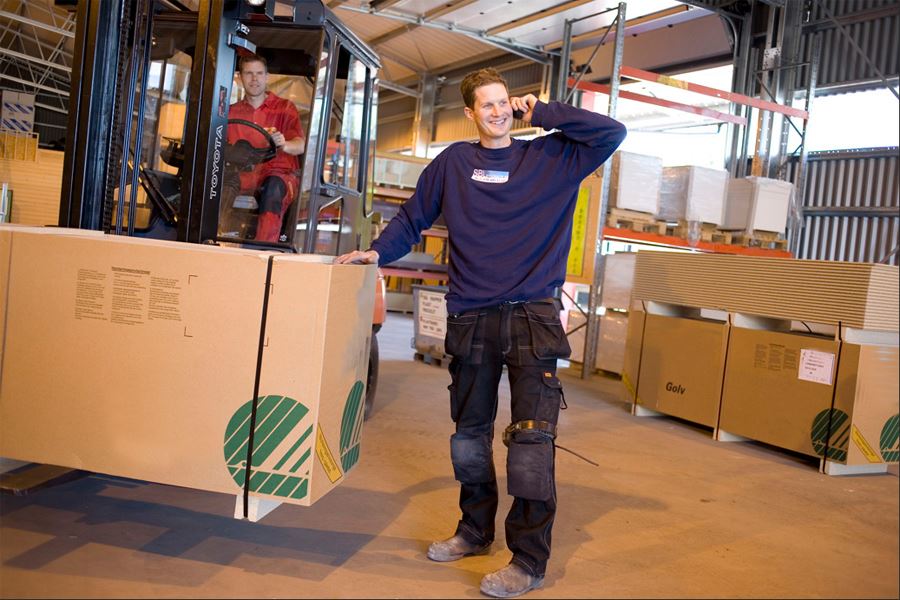EU; don't make it difficult for sustainable building!
The EU Commission's proposal for a new construction product regulation risks banning environmental labels such as the Nordic Swan Ecolabel. Nordic politicians should therefore act so that consumers and purchasers will be able to use environmental labels in the future when they buy construction products, write three leaders of Nordic Ecolabelling at Altinget Debate (2023-01--26).
If we are to achieve the goal of the green transition, it cannot be avoided that construction and building materials play a decisive role. The building materials themselves have a significant impact on the environment and climate, and more environmentally sustainable alternatives are needed.

It is certainly gratifying that the EU Commission, with the new construction product regulation, wants to be able to set specific environmental requirements for building materials through CE marking. This can help raise the bottom line significantly. Unfortunately, however, the Commission also proposes a ban on the use of environmental labels, such as the Nordic Swan Ecolabeland the EU Ecolabel, because they believe that the information in the CE markis sufficient.
A ban would be a serious setback for both producers and consumers. The proposal is currently being negotiated, so we must act now for the best possible outcome. Since we are facing several serious environmental crises, we cannot accept that the bar is set too low, when we know that there is an opportunity to raise it.
30 years of trust from consumers and buyers
If the proposal is adopted in its current form, the competitive advantage that producers of building materials can gain by labelling their products will disappear. Thus, a significant incentive for the actors to be at the forefront of the market and develop building materials in an even more sustainable direction would also disappear.
By setting requirements from a life cycle perspective with high environmental and health requirements for raw materials, energy and chemicals, the Nordic Swan Ecolabel has, among other things, contributed to motivating the industry to change. Among other things, by using certified wood, documenting their energy consumption and listing which chemical substances are included in the building materials. Today, there are more than 6,000 building products on the Nordic market that are either Nordic Swan Ecolabelled or EU Ecolabelled.
When a Type I environmental label, such as the Nordic Swan Ecolabel, develops requirements, all relevant environmental parameters are taken into account throughout the entire life cycle. The consumer, the entrepreneur, or the public purchaser does not therefore need to have an overview at the time of purchase of which aspect of sustainability is most important - chemicals, energy consumption or material efficiency - everything is gathered under one label.
For more than 30 years, the Nordic Swan Ecolabel has built up solid familiarity with a whopping 97% of the Swedish population and enjoys a high degree of credibility among consumers. Credibility thanks to the fact that the Nordic Swan Ecolabel has a thorough control system and is an independent third-party certification. It is very important to build on this success.
Joint struggle
There is no conflict between stricter legal requirements for everyone and the use of ecolabelling for the best in class. On the contrary, it is an extremely nice complement.
There is therefore a need for Swedish politicians - and especially the Minister of Housing - to join forces with their Nordic and European colleagues and future-proof the use of environmental labeling on construction products.
The proposal is currently being negotiated. Both the Council of Ministers and the European Parliament have good opportunities to change it so that consumers, producers and buyers can continue to benefit from ecolabels in the future. We know that many EU parliamentarians, as well as national politicians in, for example, Germany and the Netherlands, are actively working to influence the Commission's proposal.
In other words, it is not a lone struggle for the environmental labels, but rather a joint struggle in which those who want to see the green transition of society participate.
Anna Linusson, CEO Ecolabelling Sweden
Martin Fabiansen, Director Ecolabelling Denmark
Riikka Holopainen, Director Ecolabelling Finland
Read more about some different types of Nordic Swan Ecolabelled construction products: